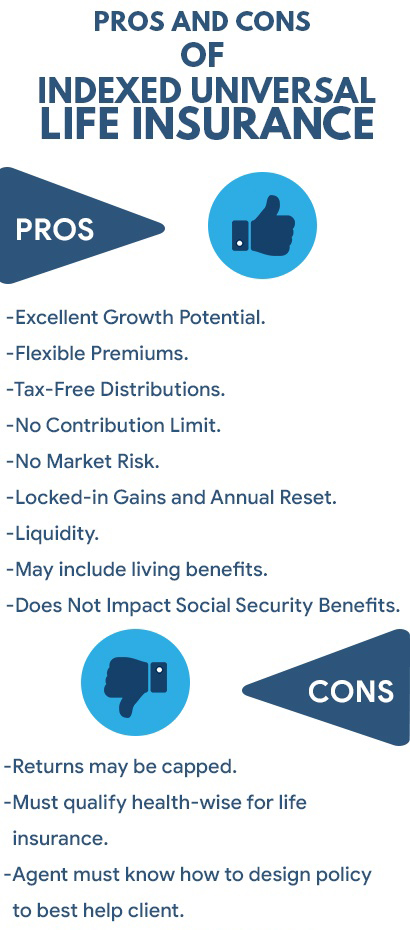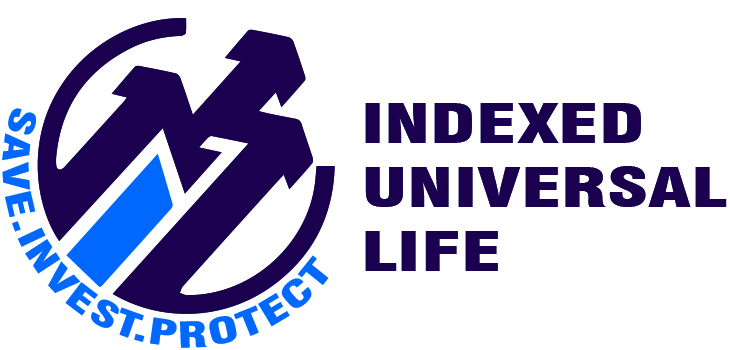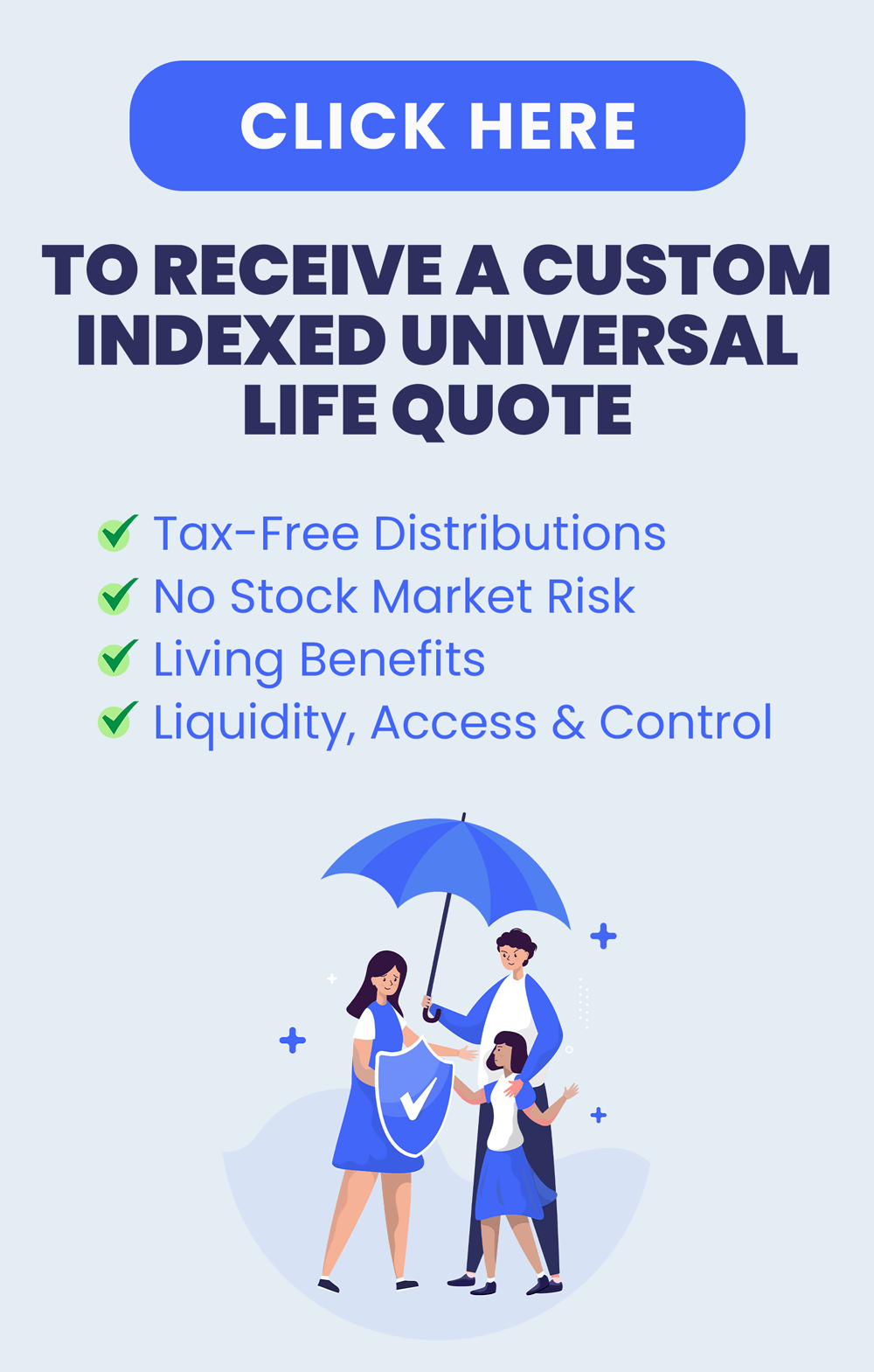Indexed Life Insurance
There are various types of universal life insurance, one of which is indexed universal life insurance (IUL). In many respects, an IUL policy functions similarly to a traditional universal life insurance policy.
Key Features and Benefits of Indexed Universal Life Insurance (IUL)
Like a traditional universal life insurance policy, an Indexed Universal Life (IUL) policy provides low-cost permanent life insurance coverage, along with the tax-deferred growth of its cash value. However, what sets IUL apart is that the cash value’s return is tied to a market index, such as the S&P 500 or the Dow Jones Industrial Average (DJIA).
An IUL typically includes a guaranteed minimum interest rate for the cash value, while also offering an indexed account option. One of its key advantages is the protection of the principal—meaning the cash value won’t incur losses, even if the underlying index performs poorly.
In exchange for this safety, IUL policies generally come with a “cap” on growth. This means that even when the index performs exceptionally well, the cash value’s growth may be limited. As a result, the cash value won’t directly mirror the performance of the tracked index.
There are several benefits to owning an IUL. As a type of permanent life insurance, it guarantees coverage for the insured’s entire life, as long as premiums are paid. Additionally, the policy’s cash value offers the “best of both worlds”—allowing for market-linked returns while keeping the principal safe during market downturns.

What is Indexed Universal Life Insurance (IUL)?
Indexed Universal Life (IUL) insurance is a form of permanent life insurance that includes both a death benefit and a cash value component. The cash value can grow by earning interest linked to a stock market index chosen by the insurer, such as the Nasdaq-100 or the S&P 500. Some policies also offer a fixed-rate account, allowing you to allocate funds between the fixed and indexed accounts.
While the interest earned from the indexed account can vary based on market performance, IUL policies provide a guaranteed minimum interest rate, protecting you from losses.
Key Takeaways
- IUL policies usually cap your returns but also guarantee a minimum interest rate.
- Indexed universal life (IUL) insurance lets the policyholder decide how much cash value to assign to an equity-indexed account and to a fixed-rate account, if available.
- Indexed universal life is a form of permanent life insurance which (like universal life) allows for flexible premiums and possibly a flexible death benefit.
- IUL insurance policies can track a number of well-known equity indexes, such as the S&P 500 or the Nasdaq-100, to earn interest credits.
“

Get personalized quotes — Free, No-Obligation IUL Quote: Enter Info, Calculate A Deposit In 5 Min, Talk To An Agent. It Costs $0 To Run The Numbers & Calculate A Recurring Deposit. No-Obligation IUL Estimate In 5 Min.
How Does Indexed Universal Life (IUL) Insurance Work?
Similar to universal life insurance, IUL policies offer flexible premiums, allowing you to underpay or skip payments, and often give you the option to adjust your death benefit. What sets IUL apart is how the cash value is linked to a market index.
When you purchase an IUL policy, the insurer provides options to select one or more indices to determine the interest on your cash value and death benefit. A portion of each premium goes toward covering the cost of insurance and fees, while the remainder is added to the policy’s cash value.
The cash value grows based on the performance of the selected index, though your money isn’t directly invested in the stock market. If you own an IUL policy, you can typically borrow against the accumulated cash value. However, unpaid loans will reduce the death benefit payout.


Key Features
Indexed Universal Life (IUL) insurance provides several notable features, including:
- Permanent, lifelong coverage as long as premiums are paid on time.
- Flexible premiums and a potentially adjustable death benefit.
- Cash value accumulation, with the opportunity for growth tied to an equity index account.
- The option to allocate part of the cash value to a fixed-interest account.
- Guaranteed minimum interest rates (known as “floors”), with potential caps on gains, typically between 6%-8%.
- Accumulated cash value can be used to reduce or cover premiums without affecting the death benefit.
Some policies allow for the selection of multiple indices.
Policyholders can determine how much of their cash value is allocated between fixed and indexed accounts. Index values are typically tracked monthly, and if the index rises, interest is added to the cash value. Gains are credited either monthly or annually, depending on the policy.
FAST FACTS
IULs usually offer a guaranteed minimum fixed interest rate and a choice of benchmark equity indexes to track.
Individuals seeking permanent life insurance coverage with the potential for cash accumulation through an equity index may utilize IULs as key person insurance for business owners, in premium-financing strategies, or as estate-planning tools.
Advantages and Disadvantages of IUL Insurance
Advantages and Disadvantages of IUL Insurance
Advantages:
- Flexible Premiums: Policyholders can adjust premiums as needed, increasing them or reducing them during times of financial difficulty.
- Cash Value Accumulation: Cash value grows tax-deferred, and can be used to pay premiums, reducing or eliminating out-of-pocket payments.
- Investment Flexibility: Policyholders control the amount invested in indexed accounts, and can adjust the death benefit. Most IUL policies offer optional riders, including death benefit guarantees and no-lapse guarantees.
- Permanent Death Benefit: The death benefit is permanent, not subject to income or death taxes, and avoids probate.
- Lower Risk: IUL policies are not directly tied to stock market investments, which reduces risk.
- Access to Cash Value: Policyholders can access the cash value at any time without penalties, regardless of age.
- Unlimited Contributions: There are no limits on the annual contributions to an IUL policy.
- Extended Maturity Date: Many IUL policies mature later than other universal life policies, often at age 121 or beyond, paying out the death benefit (but usually not the cash value) if the insured is still alive, with the proceeds potentially being taxable.
Disadvantages:
- Caps on Growth: Insurance companies often impose a cap on the percentage of index gains credited to the policy, limiting growth.
- Better for Larger Policies: Smaller face-value policies may offer little advantage over traditional universal life policies.
- Management Fees: Insurers charge fees for managing the cash value, which can erode the account’s growth.
- Premium Calls: If the cash value is insufficient to cover premiums and expenses, the insurer may require additional funds to prevent the policy from lapsing.
Is Indexed Universal Life Insurance (IUL) a Good Investment?
An IUL can be an effective way to build savings in a cash value account that may earn moderate returns linked to a market index. However, it’s important to remember that an IUL is a life insurance policy and investment product combined.
Can You Lose Money in an Indexed Universal Life Insurance Policy (IUL)?
Losing money in an IUL is unlikely, as insurance companies typically guarantee the protection of your principal against market losses.




